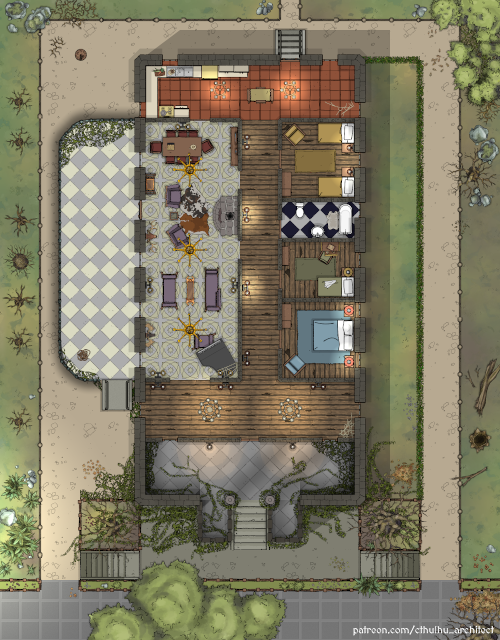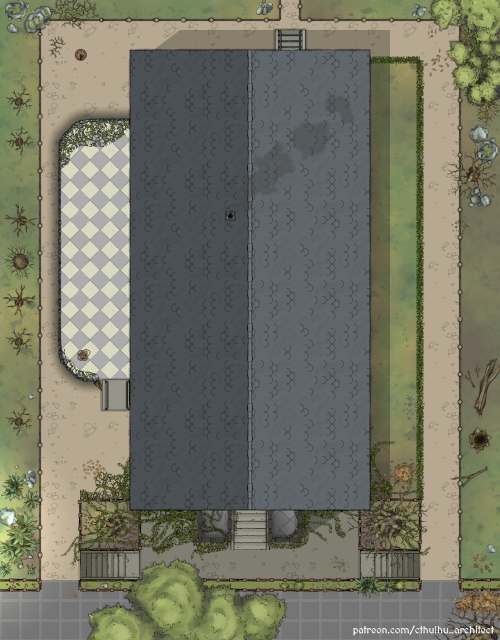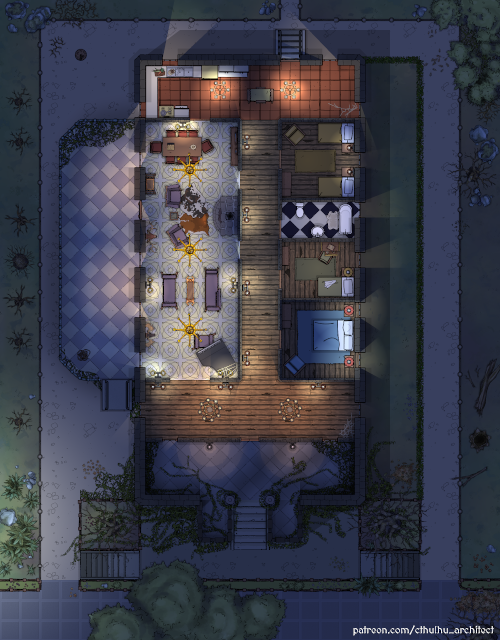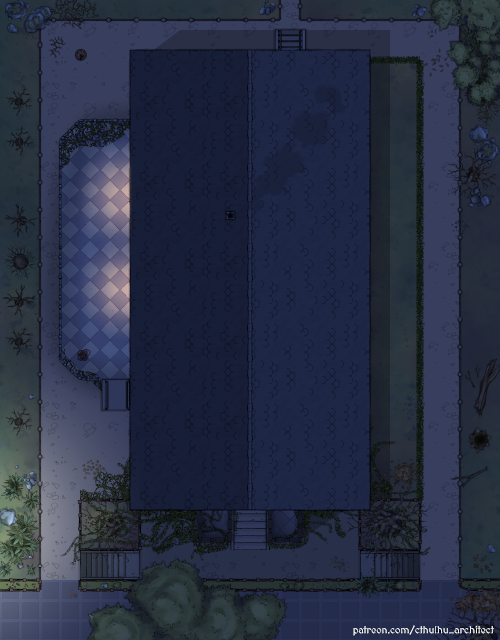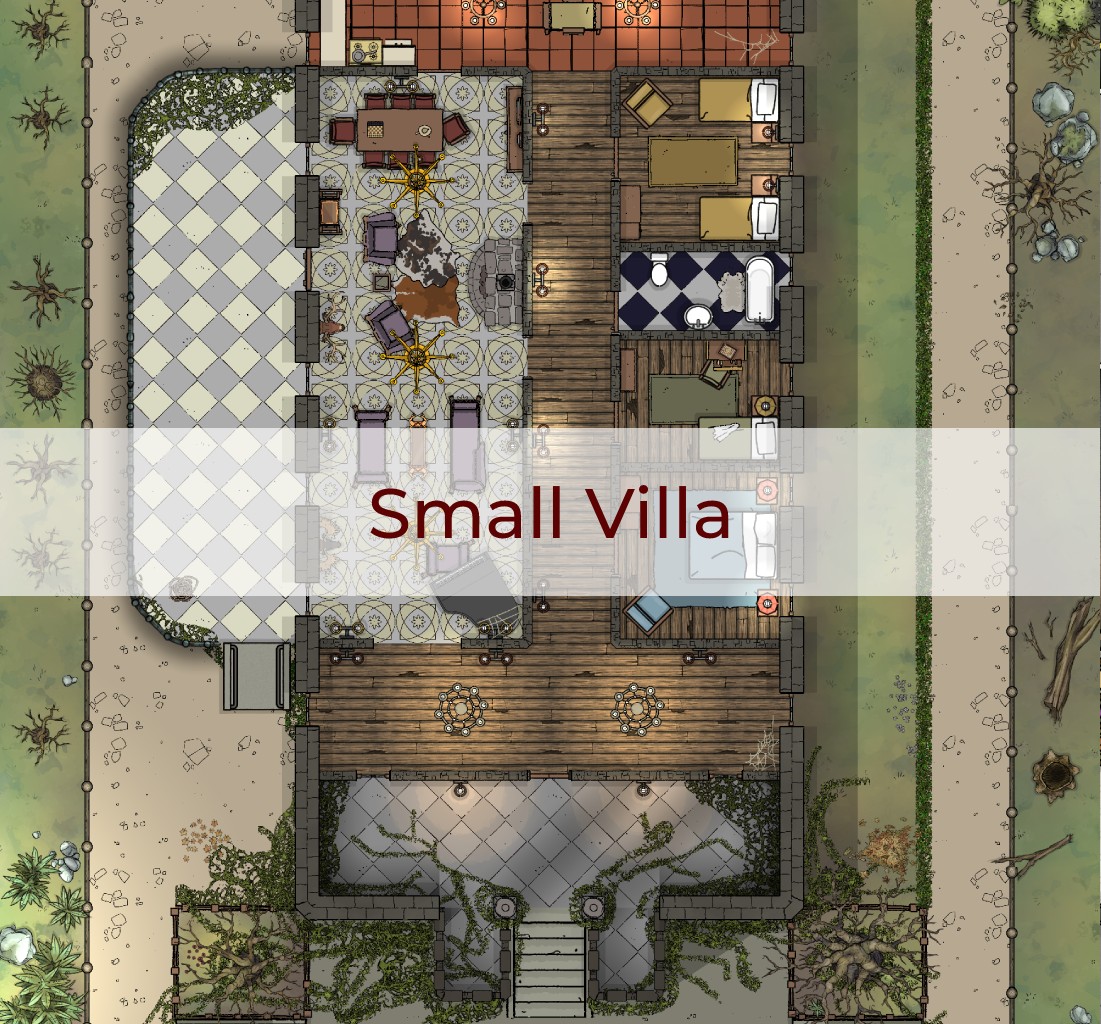Why does the villa's caretaker tend to garden plots that don't appear on the property deed, and what's behind those shuttered windows that neighbors claim sometimes glow at midnight? Which rooms echo with sounds of gatherings despite the villa standing empty for months, and why do visitors leave through different gates than they entered? What's concealed beneath that freshly turned earth where the previous owner's prized roses once bloomed?
Follow Cthulhu Architect on BlueSky!“Dazedness was uppermost, and I could scarcely recall what was dream and what was reality. Then thought trickled back, and I knew that I had witnessed things more horrible than I had dreamed.”
H.P. Lovecraft
The Villa Montesori stood alone on its small hilltop, ivory walls gleaming deceptively in the moonlight. I had inherited it from Aunt Selby---a woman I’d met precisely once when I was seven. Her letter stated only that I must come alone and stay three nights to claim my inheritance.
The interior smelled of rosemary and something else---something metallic that lingered at the back of my throat. Dust sheets draped the furniture like pale ghosts, and the windows, though spotless, seemed to distort the view outside, making the garden appear to shift and writhe when I wasn’t looking directly at it.
On the second night, I discovered the paintings. Hidden behind a tapestry in the study, dozens of miniature canvases depicted the same scene: the villa, but with subtle differences. In one, a figure stood at an upstairs window. In another, the door was slightly ajar. In the most unsettling, painted with extraordinarily fine detail, the villa appeared to be weeping a thick, dark substance from every window and doorway.
I found Aunt Selby’s journal tucked between the mattress and frame of the master bed. The entries began normally enough---gardening notes, weather observations---but grew increasingly erratic. The final entry read only: “They come from the walls when you dream. They are hungry for what lives behind your eyes.”
That night, I woke to the soft sound of breathing beside my ear. The room was empty, yet the breathing continued, wet and eager. When I turned on the lamp, I noticed all the paintings from the study arranged in a perfect circle on the floor around my bed. In each one, the villa was now completely black, absorbed by shadow---except for my bedroom window, which glowed with a sickly light.
As dawn broke, I packed my bag to leave. In the foyer, a small package waited on the entry table, wrapped in ancient yellowed paper. Inside was a deed to the villa, signed over to me, and a note in handwriting I recognized from her journal: “The villa doesn’t like to be alone. Now it has you. Now it knows your face.”
